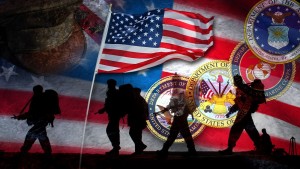On this Veterans Day, I thought I’d pay tribute to someone who served his country with honor during its darkest moment.
I got the idea from a local radio station which on Monday is going to field phone calls from listeners talking about their “favorite veteran.” I’ll forgo that call and just write it here.
His name was Peter John Kanelis. He was my father. Dad was a proud World War II veteran.
He told me the story about how he found his way into the U.S. Navy.
Dad was anxious to get into the fight shortly after the Japanese navy and air force attacked our military installations at Pearl Harbor, Hawaii. That attack occurred on Dec. 7, 1941. Dad was enrolled at the University of Portland in Oregon, where he lived with my grandparents and his six siblings — two brothers and four sisters.
It was in February 1942 that he decided to enlist. He went downtown — to the Marine Corps office. The door was locked. He walked across the hall and enlisted in the Navy on the spot.
As I recall the way Dad told the story, he didn’t have to wait long before shipping out. He went to San Diego, Calif., for three weeks of basic training. The Navy then put him on a ship and he steamed for England. He would learn seamanship skills along the way.
Dad ended up serving in three combat campaigns in the Mediterranean theater: North Africa, Sicily and the Italian mainland. He fought hard. An Italian dive bomber blew up Dad’s ship during the battle for Sicily. He was picked up fairly quickly by a British ship.
It was during the Italian mainland invasion that Dad endured 105 consecutive days of aerial bombardment from the German Luftwaffe. He told me he lost a considerable amount of weight during that time, eating mainly fruit.
Dad continued his service for the next several weeks as the Allies fought to secure Italy. Then he came back to the United States for a time. He enrolled in an officer training program at Dartmouth College, but didn’t make the cut.
He then was shipped to the Philippines, where he was staging for a likely invasion of Japan.
President Harry Truman then ordered the dropping of the atomic bombs in Hiroshima and Nagasaki.
The war ended. Dad came home, married my mother and I came along three years later. My sisters would round out our family eventually.
Dad died much too early in his life. He was just 59 when he perished 33 years ago in a boating accident. Mom fell victim to Alzheimer’s disease; she was just 61 when she died four years later.
Dad’s service during World War II was not uniquely heroic. He merely did what millions of other Americans did. He answered the call to service when his country needed him. Those of us who came along owe everything to the 16 million young men and women who served during that horrible time.
My father was one of them. That’s why he is my favorite veteran.

